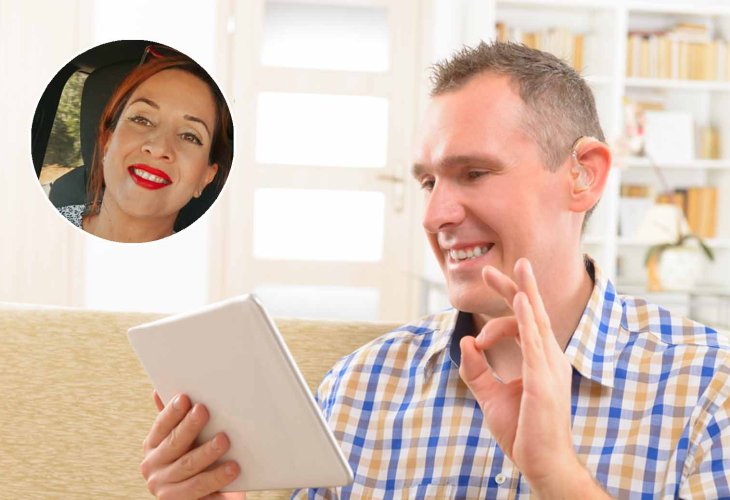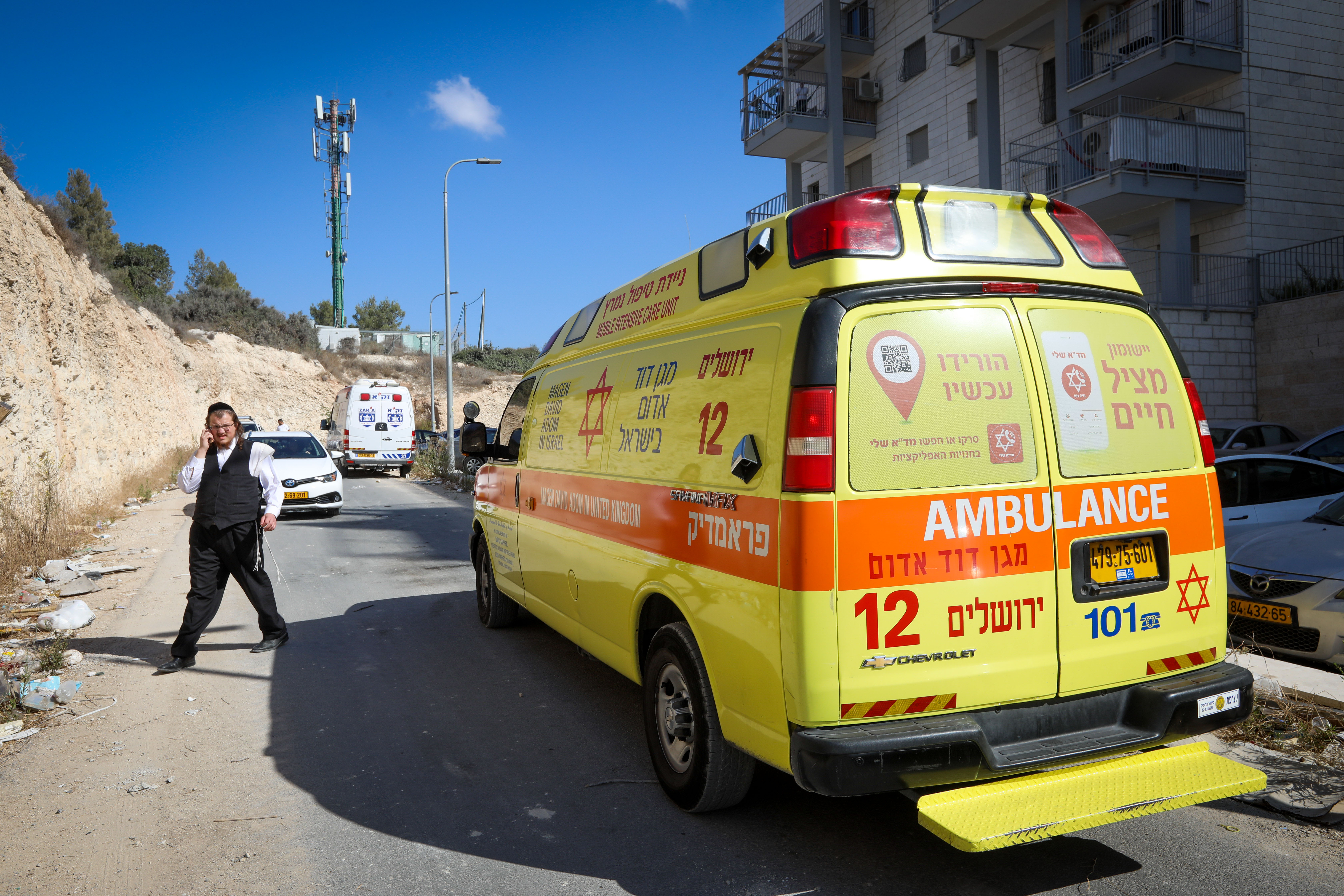"When I Needed to Call an Ambulance, I Had to Knock on a Neighbor's Door"
For years, the deaf community in Israel had to cope with lack of access to healthcare services. So how do they manage these situations, and could a groundbreaking app from the Ministry of Health change the field?
 In the circle: Michal Rosenberg (Illustration Photo: shutterstock)
In the circle: Michal Rosenberg (Illustration Photo: shutterstock)When Michal Rosenberg obtained her degree in fashion design at Shenkar College, she felt immense satisfaction. She was the first deaf person to complete the rigorous program, which required much effort, culminating in her degree. Even when she married and had two daughters, she experienced the same satisfaction. She felt that nothing could stop her from fulfilling her dreams.
Nothing was easy or simple for Michal, but she fought, believed in herself, and managed to find solutions to every challenge or difficulty. However, she still couldn’t reconcile with the lack of awareness among various service providers regarding the deaf and hard of hearing.
"We Want to Be Independent"
Michal is married to a hard of hearing person, and both her daughters are hard of hearing as well, and they encounter this reality in almost every sector. "Almost every time we need to receive a service from an organization or company, the only way to communicate with them is through a hearing person who talks for us," she clarifies. "The situation was desperate and particularly frustrating when we got to doctors. In such times, we would try to communicate in writing, but doctors did not always have time and patience. Furthermore, their handwriting, as known, is not always clear. It is true that there was always the option to call a translator, but sometimes we needed a doctor immediately and didn’t have time to call one, or the translator did not arrive for various reasons and had no replacement. In general, like anyone else, we prefer not to depend on family or friends because they are not always available and able to help us. We want to be independent, like everyone else."
In recent months, the Ministry of Health launched a unique application, a result of Israeli development, aimed at solving precisely this problem, as with a click on the app you can connect with a service representative who speaks sign language, and this representative communicates with the healthcare system on behalf of the deaf person.
Tali Dahan, head of the 'Voice of Health' center from the Ministry of Health, led the initiative after encountering many requests from the deaf and hard of hearing. "For the past two years, I was responsible for the Corona center," she explains, "We received around 45,000 calls a day, and there I realized the greatest need of those who cannot hear or speak. Their difficulty screamed out, and we tried to respond to it. At that time, we used a company that provided sign language services for the service, but the load was heavy and not everyone received the perfect response."
An Israeli Development
In the past year, with the end of the coronavirus period, the Ministry of Health decided to continue the collaboration with the company SignNow through the company Tikshuv. "That's how we started to lead cooperation with the accessibility officer at the Ministry of Health, and later we formed a focus group with a group of hearing impaired individuals to learn about their needs," outlines Tali. "I remember that one of the most shocking parts of that conversation was when one of the deaf participants told us: 'If I need to call an ambulance, I have to knock on a neighbor's door and hope they are home and can call for me.' Because the deaf essentially had no way to communicate. Today, approximately 15,000 deaf sign language speakers live in Israel, about 220,000 hearing impaired people require transcription services, and about 750,000 deaf, hearing impaired, and implanted individuals, including adults with hearing loss. It was evident that a solution had to be provided. We did this in collaboration with Orly Boni, the commissioner of equality and accessibility for people with disabilities, and Dr. Leah Moran-Gilad, as part of her final project: 'Accessibility of the Ministry of Health Voice Center for Persons with Hearing Disabilities.'"
 (Photo: Yaakov Lederman / Flash 90)
(Photo: Yaakov Lederman / Flash 90)So what exactly does the application offer us?
"The company offers a very unique application in the country and worldwide," clarifies Tali, "Through it, we provide the service to those who need it, as with a button press, the deaf or hard of hearing can receive accessible service like any other person. What happens in practice is that when a hearing impaired person goes to the doctor, or wants to schedule a treatment, they simply enter the Ministry of Health website and click on the link. Within a few seconds, a translator appears, and they can explain exactly what they need. The translator conducts a three-way conversation with the representative from the healthcare system—this could be a receptionist for scheduling an appointment, a doctor, or a nurse performing blood tests, or any other medical figure. The translator directly translates and thus makes the service most accessible to the deaf person.
"We never rest," she adds, "constantly trying to think of how to improve and further streamline the app. Our goal is to provide services with the highest availability and efficiency, at any hour of the day."
Do you have an estimate of how many people use the service??
"Currently, we receive between 350 to 370 calls a month, and we are prepared for the number to only increase as people become more familiar with the app and want to use it. Of course, we will adjust ourselves as needed to provide the fastest and best level of service."
And Tali also has a message she wants to convey to hearing people: "I think this app obliges all of us. It often happens that a hearing impaired person or deaf person stops us in the middle of the street and asks for something. It’s easiest to signal to them that we don’t speak sign language and keep walking, but we must remember that there is another way. Most hearing impaired people lip-read, or at least can communicate through writing. If we only try a little and raise awareness, we can surely help them feel exactly like us, equal among equals."

